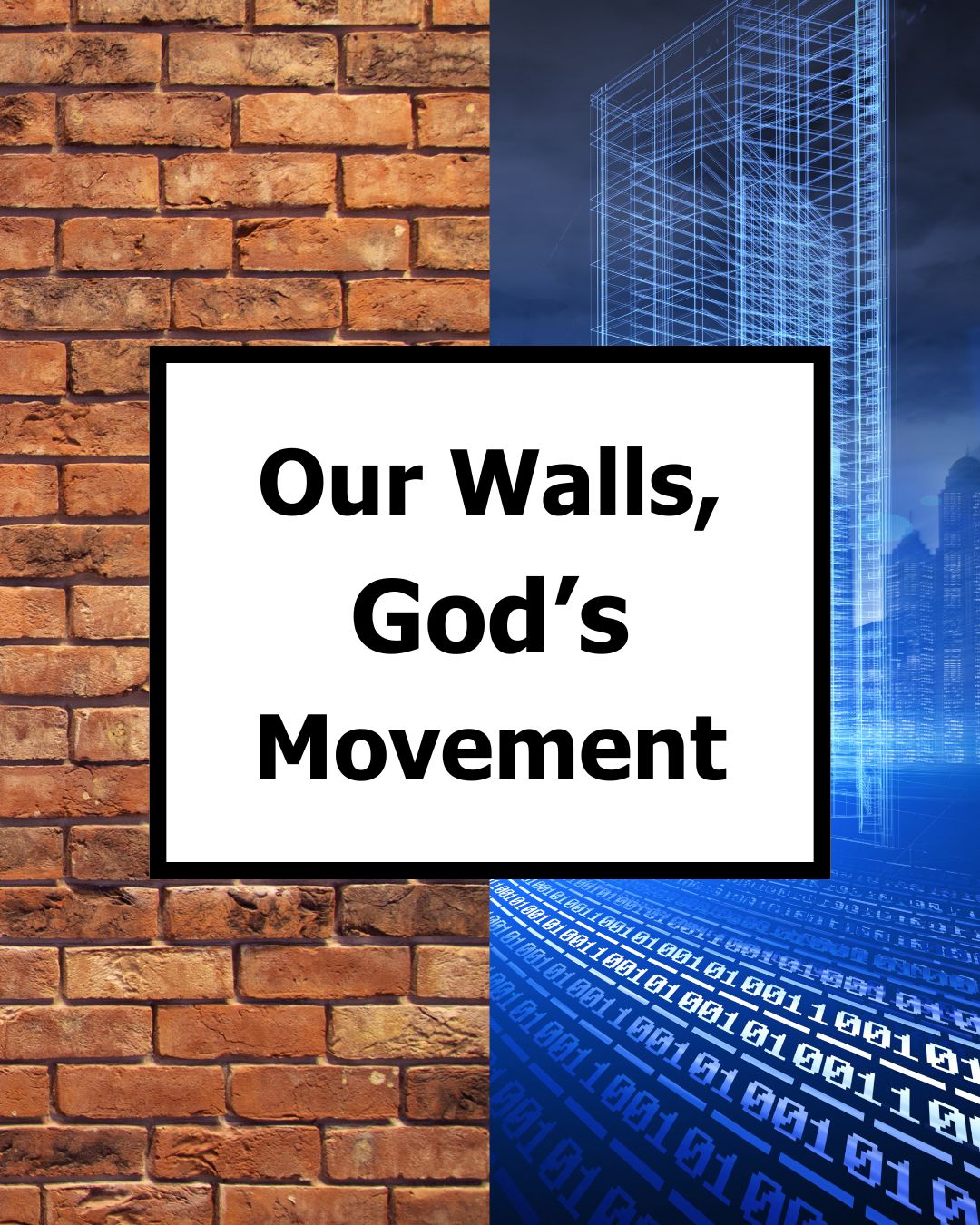Look and see what God is doing, and join him in His work. If Christians around the world were to suddenly renounce their personal agendas, their life goals and their aspirations, and begin responding in radical obedience to everything God showed them. The world would be turned upside down.
Henry Blackaby
I love this quote that I recently heard.
There is, however, something very scary in it, and it is how it challenges all our traditions and interpretations.
It isn’t just the “bricks and mortar” that is being challenged. Even digital is challenged by this.
In digital, we are very aware of platforms. The platforms shape the means and method of the message. They do not change the message.
Walls of Bits and Bytes
We, self-included, cannot sit within our digital four walls. We must spread out from Facebook, YouTube, TikTok, Instagram, X (f.k.a., Twitter), Twitch, and whatever other digital platforms we’re on.
Even it digital, people have already formed walls. Yes, they are only made of bits and bytes, yet, they are becoming rigid, too.
In some ways, walls are good. In the digital realm, it can be easy to bust through digital walls, but should we? What makes a platform valuable to you? What makes a platform valuable to the people you are trying to reach?
Walls and Culture
This is where the four walls mindset/framework actually breaks down. The four walls of a physical local church are symbolic of the culture of the church. The four walls can be porous, rather than solid. The four walls could be so solid that nothing new gets in and everything (and everyone) become petrified.
Digital may well have the same issues. Digital, it seems, tends to be more porous, but the platforms themselves lead to a development of a culture that is often is impossible for the unenculturated to break into.
Oddly, that seems to be almost celebrated in digital spheres. Granted, comparing the sheer numbers in digital spheres to the normal local physical church (even the mega ones), it can seem that the digital is more open culturally. Appearances can be deceiving.
Digital Culture Warning
We in the digital space often point to the physical realm as the epitome of locked culture, while not recognizing our own.
I am guilty.
Digital isn’t for everyone, nor does all digital meet everyone where they are at.
Those advanced in their digital realms do recognize that. I just wonder, however, if we are looking far enough ahead to see a potential issue.
TikTok Culture Goes Where
If it remains banned/blocked in the US, what will happen to its people? There is a culture on TikTok (neither supporting nor opposing, just stating).
The culture developed on TikTok. Much of the culture was shaped by the nature of the platform (short form video), the algorithm of the platform, and the social interaction. The TikTok culture is unique.
Its US users, now de-homed, will go where, exactly? They might try Instagram or Facebook, but probably not. YouTube and its shorts? Maybe. Perhaps old Vines or other short form platforms will return. Perhaps someone will be successful in creating a Mastodon or BlueSky iteration/server that will be successful (this is my hope).
De-Homed Culture
I don’t know much, if anything, about how a refugee really adapts to a new culture. Yes, I’ve heard stories (including from refugees). Yet, there is always something much deeper in that.
Like physical refugees, TikTok-ers didn’t want to move. TikTok-ers are looking for the next place to be.
Many people are looking for the next place to be. It isn’t just TikTok-ers. It’s refugees from other nations. People who feel disconnected from a culture they perceive as not theirs.
God’s moving there.

